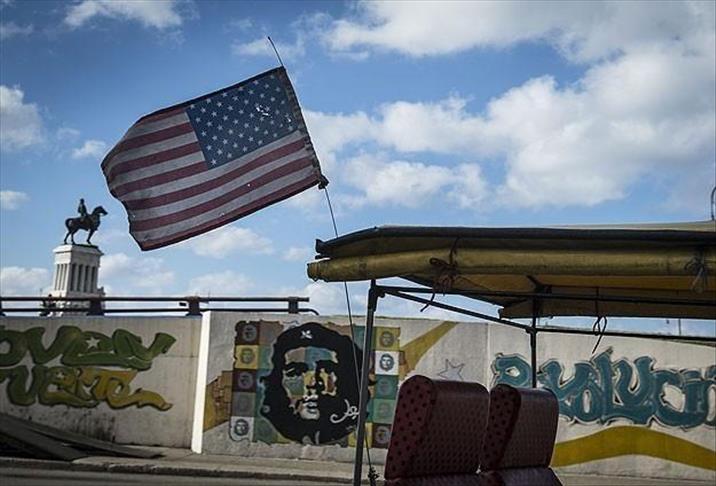
WASHINGTON
Cuba was removed from a U.S. terrorism list on Friday – a key demand from Havana as the Cold War rivals work to re-establish diplomatic relations.
“The rescission of Cuba’s designation as a state sponsor of terrorism reflects our assessment that Cuba meets the statutory criteria for rescission,” State Department spokesman Jeff Rathke said in a statement.
He added that while Washington continues to have “concerns and disagreements with a wide range of Cuba’s policies and actions”, they do not contribute to the terror designation.
President Barack Obama ordered the State Department to review Cuba’s designation last December, and Secretary of State John Kerry recommended that Havana be removed from the list in April, setting in motion a 45-day congressional review period that expired Friday.
The communist island nation was placed on the list in 1982 because of what Washington said were efforts "to promote armed revolution by organizations that used terrorism".
Being designated as a state sponsor of terrorism brings sanctions that restrict U.S. foreign aid, ban defense exports and sales, restrict “dual use” items, and impose various financial and other restrictions on the blacklisted country.
Rathke said that while dropping Cuba from the list is “an important step”, there is still a “web of restrictions that have been applied over the years”, some of which are unrelated to the terror designation - most notably the U.S. embargo that has been in place since 1958 and requires congressional action to lift.
With Cuba’s removal, only three nations remain on the list: Iran, Sudan and Syria.
The move has been met with strong criticism from some members of Congress, including House Speaker John Boehner who said the administration has given Havana “a significant political win in return for nothing”.
But House Minority Leader Nancy Pelosi praised the move, saying the "State Department has removed the burden of an outdated, outmoded strategy.
“Normalization of relations between our countries is vital to promoting human rights and prosperity throughout the region.”
Cuban President Raul Castro said earlier this month that his country’s removal from the terror list would be followed by an exchange of ambassadors.
It’s unclear when that might happen, but White House spokesman Eric Schultz on Thursday told reporters, "we’re much closer to re-establishing relations and reopening embassies".
Castro and Obama held an historic meeting at the Summit of the Americas in Panama in mid-April in the first such meeting between American and Cuban leaders in decades.
The U.S. and Cuba have held four rounds of talks aimed at re-establishing relations, the most recent of which concluded last Friday.
Diplomatic relations between the U.S. and Cuba were severed more than 50 years ago in 1961 after communist guerillas toppled former Cuban President Fulgencio Batista.
Anadolu Agency website contains only a portion of the news stories offered to subscribers in the AA News Broadcasting System (HAS), and in summarized form. Please contact us for subscription options.

